Kitab Al Munir: Book Of Enlightenment
"Yet there is among men such a one as disputes about Allah, without knowledge, without guidance and without the Book of Enlightenment" surah 22:7-8 Al Hajj. According to Abdullah Yusuf Ali "There is no doubt about the literal meaning of the words, 'the Book of Enlightenment'.” But where is this non-Islamic scripture without which the Quran declares it is impossible for Muslims to know about God Almighty?
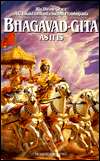
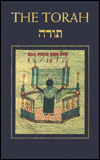
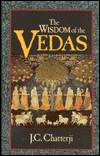
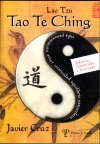
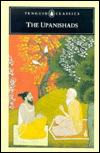
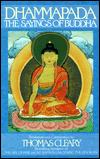
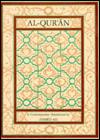
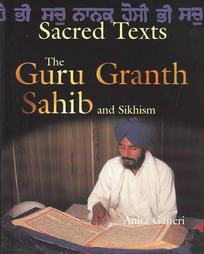
Which is the Kitab al-munir, the Book of Enlightenment?
The Kitab Al Munir (Book of Enlightenment)
And verily the Hour will come: There can be no doubt about it,
Or about (the fact) that Allah will raise up all who are in the graves.
Yet there is among men such a one as disputes about Allah,
Without knowledge, without guidance and without the Book of Enlightenment,
Disdainfully bending his side in order to lead men astray from the path of Allah:
For him there is disgrace in this life, and on the Day of Judgement,
We shall make him taste the Penalty of Burning (Fire)
surah 22:7-9 Al Hajj (The Pilgrimage)
Abdullah Yusuf Ali, The Holy Qur'n, Amana Corporation, 1989.
They said: Allah took our promise not to believe in a messenger,
Unless he showed us a sacrifice consumed by fire (from heaven.)'
Say: 'There came to you messengers before me with Clear Signs, and even with what ye ask for:
Why then did ye slay them, if ye speak the truth?'
Then if they reject thee, so were rejected messengers before thee who came with Clear Signs, and the Scriptures, and the Book of Enlightenment. [490]
surah 3:183-184 Ali 'Imran (The Family of Imran)
Abdullah Yusuf Ali, The Holy Qur'n, Amana Corporation, 1989.
"490. The three things mentioned in the Text are: (1) Clear Signs (bayyinat) (2) zubur, and (3) kitab al Munir. The significance of (1) I have explained in the note to 3:62, as far as they relate to Jesus. In a more general sense, it means the clear evidence which Allah's dealings furnish about a man of God having a true mission: e.g., Moses in relation to Pharaoh. (2) The word Zubur has been translated as scriptures. It comes from the root Zabara which implies "something hard". The commentators are not agreed, but the prophetic writings which seem to contemporaries difficult to understand may well be meant here. David's psalms (Zabur, iv. 163) may also come under this description. As to (3), there is no doubt about the literal meaning of the words, 'the Book of Enlightenment'. But what does it precisely refer to? I take it to mean the fundamental guide to conduct - the clear rules laid down in all Dispensations to help men to lead good lives.”
Abdullah Yusuf Ali, The Holy Qur'n
Abdullah Yusuf Ali, The Holy Qur'n, Amana Corporation, 1989.
Muslims quiet about Kitab Al Munir (Book of Enlightenment)
There is a strange silence permeating all Islamic lands and minds for centuries. No scholar, theologian, ayatollah, imam or Muslim wants to discuss, accept, find or even acknowledge the "messengers before thee who came with Clear Signs and the Scriptures and the Book of Enlightenment" (Kitab al Munir) preceding the Torah and Bible. They are all keeping an eerie hush about the Book of Enlightenment, as if it does not exist, despite the Quran's assurance that it was written long before the arrival of Prophet Abraham.
The reason for this collective amnesia is because of deep fears inherent to the identification of this Revealed Book, as it lies outside the religious boundary of Islam, Christianity and Judaism. Since neither Abraham, Moses or Jesus come with any scripture of any kind it is obvious that it refers to Hinduism and its branches of Buddhism and Sikhism. Moreover the Vedas and Puranaas more than fulfill all four requirements of surah 22:7-9:
(1) messengers before thee;
(2) Clear Signs;
(3) Scriptures and
(4) Book of Enlightenment.
This timeless God Almighty sent forth thousands of ancient beings to descend on Earth and nourish it with sacredness. These prophets with holy scriptures stand like giant spiritual trees that tower over the rest in the great Divine Forest, with roots going deep into the very beginning of Time itself, and beyond. (Islam believes that 125,000 prophets were sent by Allah to guide humans.)
But the conditioning and false pride of Muslims do not enable them to humble and accept the Truth that this Book of Enlightenment is non-Islamic. They prefer, as they have done for centuries, to cloak this Revelation in mystery, apathy and obscurity in order to keep their followers from seeking knowledge elsewhere too. They have reduced the Kitab Al-Munir to a mysterious set of rules found in all dispensations (the ordering of events under divine authority). With one stroke of the pen the Book of Enlightenment has been conjured by the Islamic scholars into something even unknown to them -"The clear rules laid down in all Dispensations to help men lead good lives.” They have mutilated the Book of Enlightenment into something ambiguous, non-identifiable and elusive.
The irony of their brazen bluff is that they admit there is no doubt about the precise interpretation: Kitab Al Munir means "Book of Enlightenment"! And with the same forked tongue they have the audacity and temerity to interpret it as a set of divine rules to help men lead good lives! These Hypocrites and Schism Seekers know precisely that they are twisting Allah's Revelations.
Yusuf Ali acknowledges that "hundreds or thousands of useless people join in and corrupt the work or reduce it to a pompous farce from which the Truth that was coming down recedes into secrecy and silence. It is what has happened to the religions and is the reason of their failure.”
We could not agree more. Had not this been the case they would have protested centuries ago that this Kitab al Munir must be identified. (But if the Qur'n had been the Book of Enlightenment to know the Reality of Allah, they would have thumped their chests and shouted from the top of minarets to the rest of the world. Since it is not, a collective silence has been maintained for the last 1400 years.)
The Qur'n declares a number of times of the existence of Messengers prior to Prophet Abraham who not only had Clear Signs and the Scriptures, but also the Kitab al Munir (Book of Enlightenment). Enlightenment means to give light of fact or knowledge; to reveal truths; to free from ignorance, prejudice, or superstition. The Qur'n deals mainly with the monotheism of God, the Day of Resurrection and the Day of Judgment. There is scant knowledge of His Ruh (Adi Shakti, Holy Spirit) and other forms knowledge that are the foundations stones of enlightenment.
"There is some question as to whether Islam is a separate religion at
all. It initially fulfilled a need among Arabs for a distinctive or
special creed, and is forever identified with their language and
their impressive later conquests, which, while not as striking as
those of the young Alexander of Macedonia, certainly conveyed an idea
of being backed by a divine will until they petered out at the
fringes of the Balkans and the Mediterranean. But Islam when examined
is not much more than a rather obvious and ill-arranged set of
plagiarisms, helping itself from earlier books and traditions as
occasion appeared to require. Thus, far from being "Born in the clear
light of history," as Ernest Renan so generously phrased it, Islam in
its origins is just as shady and approximate as those from which it
took its borrowings. It makes immense claims for itself, invokes
prostrate submission or "surrender" as a maxim to its adherents, and
demands deference and respect from nonbelievers into the bargain.
There is nothing—absolutely nothing—in its teachings that can even
begin to justify such arrogance and presumption.”[1]
Muslims cannot know God without Kitab Al Munir
The Qur'n, lacking such enlightenment, directs the Muslims to find the Kitab al Munir (Book of Enlightenment) in order to know Him i.e. through His Ruh (Spirt).
However, no Muslim has yet any desire to seek it. We are talking of 1,400 years! Reason: It would be a humiliating admission that without the Kitab al Munir no Muslim will be able to know Allah. It is far safer for the Thieves of Truth to bury their heads in the sand and fake ignorance.
But since the Qur'n has declared to Muslims that the early Messengers came with the Book of Enlightenment and no one will know God Almighty without it, then somewhere on this Earth this priceless, timeless Knowledge still exists till today.
So where is this Book of Enlightenment?
Who has this Book of Enlightenment?
Why has Book of Enlightenment still not been found?
Have they searched the entire Earth and their minds to locate the Kitab al Munir?
Have they asked the other children of Allah about this Book?
Have they inquired who are the Messengers of Allah mentioned in surah 3:183-184 (Ali 'Imran)?
Have they searched the Scriptures mentioned by Allah in surah 3:183-184?
Maybe they should again be reminded that "verily the Hour will come: There can be no doubt about it, or about (the fact) that Allah will raise up all who are in the graves. Yet there is among men such a one as disputes about Allah, Without knowledge, without guidance and without the Book of Enlightenment, disdainfully bending his side in order to lead men astray from the path of Allah: For him there is disgrace in this life, and on the Day of Judgement, We shall make him taste the Penalty of Burning (Fire).”
The Message of these verses is very clear and direct: The Day of Judgment will definitely come and there is no doubt about it. But even as this Dreadful Hour draws near false guardians of the religious regimes will still be disputing about Allah, as is so self-evident in this modern age. These self-appointed preachers of Allah - without Knowledge, without Guidance and without the Book of Enlightenment - will twist the Truth in order to lead their followers astray from the True Path. These self-proclaimed guardians of Allah - the clerics, imams, mullahs, shaikhs, ulema, ayatollahs, popes, bishops, priests, reverends, pandits, brahmins, swamis, acaryas, rabbis, dalai lamas, lamas, granthis - do not accept His Divine Unity. These are the men of religious regimes who lead others astray, self-assuming the religious authority to preach and guide humans.
There is no Knowledge or Guidance without The Kitab Al Munir
But Allah directly accuses them of having no Knowledge, no Guidance and no Book of Enlightenment. Despite this, these false preachers of Allah have deliberately and deceitfully continued to 'bend their sides' i.e. preached only about their Prophet and scripture, deviously denying His other messengers, and leading True Believers (Al-Mu'minun) away from the Truth. And now, as the vast majority is unaware that Qiyamah has begun, it is obvious that without this Book of Enlightenment no one will know about God Almighty.
"There are many ways of preventing the access of people to the truth. One is to tamper with it, or trick it out in colours of falsehood: half-truths are often more dangerous than obvious falsehoods. Another is to conceal it altogether.... When people do this of set purpose, against their own light ("of which ye are yourself witnesses"), they are descending to the lowest depths of degradation, and they are doing more harm to themselves than to anyone else.”
Abdullah Yusuf Ali, The Holy Qur'n, p. 145
Surah 27:7-9 Al Hajj (The Pilgrimage) confirms that the Qur'n and all other Scriptures are inferior as far as God-realization is concerned. No Muslim, Jew, Christian, Hindu, Sikh or Buddhist preachers will ever know God without the Book of Enlightenment. All of them are ignorant about the Absolute Reality of God Almighty and will be squabbling among themselves
till Judgment Day. The Qur'n is the Book of Wisdom (surah 10:1, 31:2 and 36:2), but it is definitely not the Book of Enlightenment. The Qur'n is a guide to humankind (surah 16:64, 31:3, 39:41 and 80:11), but it is assuredly not the Book of Enlightenment. Allah's Message in the Qur'n is the same as that given to previous Messengers (surah 41:42-43), but is decidedly not of supreme Enlightenment.
Professor Mahmoud M. Ayoub, author of World Religions: The Islamic Tradition, has this to say: "In outward form and structure, the Qur'n does not represent a unified and coherent book with beginning, middle, and end. Rather, it reflects a gradual and often circumstantial process of accumulation. It is neither a story with a well defined and developed plot, nor a well-argued philosophical or theological treatise. Behind this apparent disunity and incoherence, however, there is a clearly discernible unity of message, purpose, and worldview.”
The Qur'n is a guide, a way, a path, a revelation - as are the scriptures of all other traditions - but it does not bestow the Knowledge as to the Reality of Allah. It "contains many specific 'theocratic' provisions about the ordering of political, social, and economic life for a whole nation and its rulers as well as their subjects, its authority has direct and immediate bearing on the entire fabric of existence, corporate as well as individual "In the Qur'n all affairs are sorted out and decided as commands from God (44:4-5). Therefore the Qur'n legislates specific ordinances for marriage, sex, and divorce; it has as much to say about slavery and war; and it prescribes rules of procedure for law courts and trials ...”
"The contents of the different parts of the Koran are extremely varied. Many passages consist of theological or moral reflections. Here the reader is reminded of the greatness, goodness and righteousness of God as manifest in nature, in history and in the revelation of the prophets. In some passages the scared book falls into a diffuse preaching style, and other passages seem more like proclamations or general orders. A great number contain ceremonial or civil laws, or even special commands to individuals down to such matters as the regulation of Mohammed's harem.”
The Qur'n was revealed to primitive pagans of the Arabian peninsula, who were neither Jews nor Christians, so as to instill the consciousness of the Almighty Creator in them. Harsh punishments were meted to discipline these wandering hordes of bandits, devoid of even rudimentary education, from practicing ritual killings to appease their multiple deities.
The profound Knowledge of His Spirit (Ruh, Adi Shakti, Holy Spirit) established more than a millennia ago in India by hundreds of sages and saints, could not be imbibed to such uncivilized tribes even in the 6th. century AD. To teach them about His Ruh and other refined points of the human spirit would have been a futile exercise. To give Self- Realization (Baptism of Allah) with the help of His Spirit would have been intellectually hopeless. To enlighten them about Kundalini, Chakras, Consciousness, Senses, Mind, Intellect, Attention, Soul, Ego and Super-ego would have been definitely impossible. Even till today it takes years for educated humans to grasp and understand the fundamentals of these spiritual Truths. Such illumination would have been impracticable 1,400 years ago.
So the Qur'n was communicated mainly to imbibe a consciousness of God Almighty and destroy their ancestral idol-worship of rocks, trees, animals, stars and other celestial bodies. The Qur'n does not bestow superior enlightenment as the Muslims are made (and want) to believe; nothing was said to Rasul Allah (Prophet Muhammad) that was not told to the Messengers before him. The Qur'n does not shed any new light; it is just another addition to the collective library of Holy Scriptures meant for all humankind.
However, as far as prophecies and revelation is concerned, the Qur'n is indeed a far superior scripture. Other are also of the same opinion:
Divine Mystery of the Resurrection will be explained and illuminated by Allah Himself in context of consciousness transcending history.
"The Holy Koran never purports to add to, or to subtract from, the essential core of prophetic teachings that belong to all humanity. To respect and accept the Koran means to affirm as well all of Allah's revelations throughout history, which share precisely the same essence.
The various Divine Revelations, which have historically developed into the revealed tradition as we know them today, are unique and self-authenticating holy ways of life, not just various sets of doctrines.
Although history presents a picture of great religious diversity, Allah assures humanity in His Holy Koran that such diversity should not be regarded as the deviation of one tradition or another from the truth, but as a Divine Mystery which will be explained and illuminated by Allah Himself in a context of consciousness which transcends history.
"The Ever-Present Source has revealed an uniquely authentic holy way to each and every nation, true spiritual disciplines that should be performed with care and constancy... One the Mystic Day when you awaken from the sleep in finite existence, Allah Most Wise will explain clearly to you the diversity that now appears to divide His various Revelations.” (22:67-70)
This aspect of the Koranic vision, the harmony of religions, represents much more than human generosity, tolerance, and ecumenical spirit. Only Allah can offer such absolute assurance concerning the unbroken and unbreakable unity of all revealed traditions. This religious unity is not a mere wish, nor an intellectual speculation, nor even a high moral ideal that may or may not be capable of fulfillment.
The essential teaching transmitted through all the prophets is stated clearly by Allah again and again in the Koran as revealed truth. It is surprising and direct, full of healing and illuminating power to transform our basic way of experiencing the world.
The instinctive feeling of separation between members of different religious or cultural bodies can be dissolved only through contemplating revealed truth and not through the rational and diplomatic processes which allow our self-centered, divisive motivations to continue functioning.
"Throughout the course of history the Source of Wisdom has sent Holy Messengers to bear only one essential Message: 'There are no conscious beings separate from the infinite I Am that I am. Therefore surrender your very being to the Source and Goal of Being.'" (21:19-25)
The coherence and inclusiveness of this single message at the center of the drama of revelation is self-evident, not just because it has been stated so clearly by the Holy Koran but because it really has been the essential point of all revelations throughout history. This message is self-evident because our consciousness is created to be harmonious with the truth that there is no fundamental separation within the one Reality.
Revelation does not consist only of general principles but is characterized by rich particularity and uniqueness. None of the historical situations which have become vehicles for Divine Revelation are ever to be dismissed in favor of a general theory of revelation. And no previous revelation is meant to be replaced by more recent revelation.
The fact of radical religious diversity does create tensions between historical traditions, although according to the Koranic vision these feelings of tension or foreignness between the peoples of revelation are to be discarded and Allah's own explanation is to be humbly awaited.
Nonetheless, once the Truth reveals itself through a unique, unrepeatable historical figure, that person remains a bearer of supreme blessing to humanity for all future ages. Thus the voice of Truth assures the Virgin Mary in the Holy Koran:
From before eternity, Allah Most Merciful has ordained this spontaneous childbirth as a unique demonstration of His Love and Compassion for human beings to contemplate throughout history. (19:16-36)
The stature of a Holy Prophet is extremely exalted. Islamic tradition recognizes souls to be eternal by nature, which is to say that Allah created even from before eternity all the souls who would ever descend into the spatial and temporal realm of history. Among these radiant human souls—each one of whom received as its eternal life the very breath of Allah, and each one of whom is irreplaceable—the souls of the prophets appear as suns among candle flames, so transparent are they to the boundless Divine Light.
As we contemplate the life and teaching of any of the exalted prophets of Allah, the sense of awe, the sense of gazing at a magnificent rising sun, should pervade our awareness. This overwhelming intuition of prophetic magnificence, which is ultimately the magnificence of truly awakened humanity, is an essential aspect of the Koranic vision.
"The Source of Wisdom placed from before eternity this penetrating spiritual understanding in the soul of My beloved Abraham so he would be a leader for those who turn with perfect clarity toward Allah alone.” (6:74-83)
The fact that Jews, Christians, and Muslims have all emerged from the lineage of the Prophet Abraham gives some indication of the measureless stature of this prophetic soul.
In the drama of revelation, however, the life of a Holy Prophet, no matter how glorified his soul, is never without terrible struggle and suffering, is never a fantasy of worldly power and adulation. As Allah consoles His Prophet Muhammad:
Universal harmony of religions must be deeply contemplated and prayerfully assimilated
"The Holy Messengers before you were also branded as imposters. With patient and unwavering hearts they accepted this calumny, deeply saddened, until the very Source of Love, Who manifests through you, flooded them with Peace and Power.” (6:33-34)
Far from being in some fundamental, atavistic competition with one another, the various prophetic revelations confirm, expand upon, and safeguard each other. Once again, this deep perception of harmony is based on revealed truth. It is not just a rational or empirical theory put forward by well-meaning scholars or reformers.
As revelation, this universal harmony of religions must be deeply contemplated and prayerfully assimilated rather than debated in the intellectual or political dimensions of our surface awareness.
"Through the Prophet Jesus, the Source of Wisdom transmitted the Radiant Gospel, full of the same light of Truth that streams through the Living Torah...the Eternal Source now reveals through you, My beloved Muhammad, this sublime Book of Truth, which confirms and safeguards the essential teaching of the Torah, the Gospel, and all the other authentic scriptures that existed before them.” (5:49-52)
We may wonder why Allah permits religious diversity and even outright doctrinal contradiction to develop around the essential message of conscious participation in the oneness of Reality. This is similar to another root question: Why did Allah generate such a diversity of created beings, even in deadly conflict, within the perfect peace of the Divine Unity? The answer is te same: for the spiritual education and strengthening of souls.
"The Source of Power could have united all peoples into a single nation, but Allah Most Merciful has chosen to manifest His Truth through various holy traditions as teaching and testing for human beings. If each spiritual nation practices faithfully the path revealed through its own Prophets, then all humanity will return together to the Source of Love.” (42:13-18)
The integral nature of each revealed tradition is stressed because human beings need rich, historical soil in which to be rooted. Souls cannot live and grow in strength by floating in an abstract space of general principles. That would be philosophy, not revelation. Allah wishes to protect the balanced ecology of each living environment of His Revelation.
"Thus Jewish and Christian traditions should be accepted reverently in the light of the Glorious Koran...But you should not accept, My beloved, any teachings or practices of these earlier traditions which have sprung from limited human conceptions or which contradict the clear principles of truth revealed through the Living Koran.” (5:49-52)
This Divine Warning is not meant to generate an attitude of divisiveness, but simply to sharpen our realistic recognition that the historical process can produce subtle or obvious distortions in any precious body of revelation, which nevertheless remains essentially authentic, pure at its core, and worthy our reverent acceptance.
The decision about which aspects of a given tradition have become distorted is complicated by the chaotic surface of cultural differences as well as by deep problems of communication. To follow this Divine Instruction is not aggressively to criticize other great traditions, but to exist humbly in awe of the Divine Unity while remaining fully integrated with the continuous initiatory transmissions of the particular body of revelation in which one actually lives and breathes.
However, the soul is never to be essentially identified with one historical strand of revelation as opposed to another, for we have seen that revelation is one, just as Allah is one. The Holy Koran allows us a precious vision of the one revelation, the religion beyond religions which nonetheless constitutes the living core of each religion, the religion which is the very nature of humanity as created by Allah.
"All nations are given precisely the same spiritual instruction from the Source of Wisdom. The Voice of Truth calls human beings to turn around completely toward their own True Source, to plunge wholeheartedly into prayer each day, and to offer constant tenderness and assistance to those in any kind of need. This is the one Religion of Truth, natural to the human soul, which transcends all religious factions with its perfect clarity and directness.” (98:1-5) [2]
All facts and warnings given on this site are not to disparage or insult but to uphold the Truth without fear or favor. Those who reject or deny truth because it does not suit their conditioned minds and indoctrinated beliefs should introspect the reasons for their disbelief. If they find out that their religious teachers misinterpreted their Holy Books they will know the Truth. If they realize that the false preachers had misled them they will accept the Truth. If they confirm that the prophecies have come true they will understand the Truth. If they find out that the Messengers sent to many lands came from One Source they will embrace the Truth.
Inner jihad spiritual and esoteric key for understanding heart of the Islamic message of Resurrection in its totality.
The term exoteric is mostly used in conjunction with religions, such as Judaism and Islam, in which the teachings shift the believer's focus of away from the exploration of the inner self and towards the adherence to rules and laws. Esoteric means the "Inner" (eso-), in the sense of the inner consciousness; the contemplative, mystical or meditative transpersonal perspective. This is something different from the ordinary everyday understanding of things, and can only be understood by intuition or higher mental or spiritual faculties.
"The great stations of perfection in the spiritual life can also be seen in the light of the inner jihad. To become detached from the impurities of the world in order to repose in the purity of the Divine Presence requires an intense jihad for our soul has its roots sunk deeply into the transient world which the soul of fallen man mistakes for reality. To overcome the lethargy, passivity and indifference of the soul, qualities which have become second nature to man as a result of his forgetting who he is constitutes likewise a constant jihad. To pull the reigns of the soul from dissipating itself outwardly as a result of its centrifugal tendencies and to bring it back to the centre wherein resides Divine Peace and all the beauty which the soul seeks in vain in the domain of multiplicity is again an inner jihad. To melt the hardened heart into a flowing stream of love which would embrace the whole of creation in virtue of the love for God is to perform the alchemical process of solve et coagula inwardly through a 'work' which is none other than an inner struggle and battle against what the soul has become in order to transform it into that which it 'is' and has never ceased to be if only it were to become aware of its own nature. Finally, to realize that only the Absolute is absolute and that only the Self can ultimately utter 'I' is to perform the supreme jihad of awakening the soul from the dream of forgetfulness and enabling it to gain the supreme principal knowledge for the sake of which it was created. The inner jihad or warfare seen spiritually and esoterically can be considered therefore as the key for the understanding of the whole spiritual process, and the path for the realization of the One which lies at the heart of the Islamic message seen in its totality. The Islamic path towards perfection can be conceived in the light of the symbolism of the greater jihad to which the Prophet of Islam, who founded this path on earth, himself referred.”[3]
The Prophet said, "Man is asleep and when he dies he awakens". Through inner jihad the spiritual man dies in this life in order to cease all dreaming, in order to awaken to that Reality which is the origin of all realities, in order to behold that Beauty of which all earthly beauty is but a pale reflection, in order to attain that Peace which all men seek but which can in fact be found only through the inner jihad.
But the followers of religious regimes are already condemned to striving, fighting, bickering, dividing, and denying till the Day of Judgement as prophesied in surah 22:7-9 (Al Hajj). They will neither have His Knowledge, Guidance, nor the Book of Enlightenment as they all have deliberately and deceitfully denied and rejected His other Messengers. Since this is the case, then all their prisoners-of-blind-faith are also condemned to the same fate.
Until today none of the Muslim scholars have been able to find this priceless Book of Enlightenment despite being explicitly pointed out its supreme importance, without which no human will have the Knowledge and Guidance as to His Reality. Why? Is it because it does not exist, despite Allah's assurance that it does? Is it because no attempt has been made to locate it beyond the Islamic boundaries? Or is it that they fear that their prisoners-of-religion will be exposed to the Truth of Allah's other Messengers? Muslims have dogmatically refused to acknowledge that surah 3:183-184 refers to Allah's Messengers sent before Prophet Noah, and known to the ancient people of India millenniums ago.
The Kitab Al Munir must enlighten humanity of the esoteric and exoteric nature of His Ruh (Spirit)
These ancient Messengers of Allah had given humankind precise techniques and detailed spiritual enlightenment recorded in various voluminous books. The Great Divine Mother had sent these Messengers with Knowledge of Allah, Kingdom of God, Holy Spirit, mysticism, microcosm, Light, angels, soul, Jesus, Buddha, Abraham, Moses, Krishna, Shiva, Ganesha, Nanak, Muhammad, Lao-tse, Quran, Bible, Granth Sahib, Vedas, Puranas, Dhammapada, Self-realization, Adi Shakti, Kundalini, Sahasrara, human subtle system, consciousness, Collective Consciousness, meditation, and so on.
In fact all Knowledge has issued forth from the Breath of Allah's Ruh. She is Shri Sastramayi (Mother of all Sastras i.e. Scriptures.) She is Shri Veda-Janani (Mother of the Vedas.) She is Shri Svarnagarbha (In the form of Letters.) She is Shri Bhasa-rupa (In the form of Languages.) She is Shri Nirmala Vidya (Pure Knowledge.) She is Shri Jnanada (Bestower of Knowledge.) The Kitab Al Munir deals exclusively about His Ruh and nothing else. Once this Book of Enlightenment is found all Muslims (Christians, Jews, Hindus, Sikhs, Buddhists) will know about God Almighty and His Plan for humanity.
Identifying the Kitab Al Munir (Book of Enlightenment)
So what is the name of the Kitab Al Munir, the Book of Enlightenment that is on Earth? The Qur'n - which encompasses the Old Testament, the New Testament, and all their Prophets - confirms that it was sent a long time ago, i.e., even before the earliest Prophets of Judaism. This eliminates the Buddhists scriptures. Thus, we are left only with revealed Holy Books of the Hindus. There is where we shall begin our search and peer into these ancient texts of spiritual enlightenment par excellence.
According to Klaus K. Klostermaier in Hinduism: A Short History, "India has been called a "living museum" and Hinduism is as good an example to demonstrate the truth of this statement as any other facet of Indian culture....
Although Western scholars, since the early nineteenth century, have labored hard to stick labels with historic dates on the written sources of Hinduism, many of these dates are far from established (the dates given be experts often vary by thousands of years!) and even when and where they are certain, they may be of limited relevance to a history of Hinduism as a whole... .
The total mass of writings considered Hindu Scriptures, i.e. books that are religiously authoritative and believed inspired by a superhuman agency, far exceeds any scriptural tradition of any other religion....
There is a tendency among Hindus to consider scriptures "Beginningless" (anadi) and to take literally the claim of many of them to be direct revelation from the Supreme - again removing them from any meaningful historical process of dating.”
All nations have been indeed given precisely the same spiritual instruction from the Source of Wisdom. It is the Holy Scriptures of the Sanatana Dharma that excel in enlightening humanity and within their vastness lies the Kitab Al Munir or Book of Enlightenment that reveals the spiritual and esoteric nature of His Spirit:
The Rig Veda
The Upanishads
The Bhagavad Gita
The Vedic Experience
The Kitab Al-Munir (Book of Enlightenment)
“Humankind today is well aware of the spectrum of threats looming over its head. We know that the number of people living on our planet is growing at a soaring rate ... We know that the already-deep abyss separating the planet's poor and rich could deepen further, and more and more dangerously because of this rapid population growth. We also know that we've been destroying the environment on which our existence depends and that we are headed for disaster by producing weapons of mass destruction and allowing them to proliferate.
And yet, even though we are aware of these dangers, we do almost nothing to avert them. It's fascinating to me how preoccupied people are today with catastrophic prognoses, how books containing evidence of impending crises become bestsellers, but how very little account we take of these threats in our everyday activities. Doesn't every schoolchild know that the resources of this planet are limited and that if they are expanded faster than they are recovered, we are doomed? And still we continue in our wasteful ways and don't even seemed perturbed. Quite the contrary: Rising production is considered to be the main sign of national success, not only in poor states where such a position could be justified, but also in wealthy ones, which are cutting the branch on which they sit with their ideology of indefinitely prolonged and senseless growth....
What, then, is the substance of the matter? What could change the direction of today's civilization?
It is my deep conviction that the only option is a change in the sphere of the spirit, in the sphere of human conscience. It's not enough to invent new machines, new regulations, new institutions. We must develop a new understanding of the true purpose of our existence on this earth. Only by making such a fundamental shift will we be able to create new models of behavior and a new set of values for the planet....
At the same time, our world is dominated by several great religious systems, whose differences seem to be coming to the fore with increasing sharpness and setting the stage for innumerable political and armed conflicts. In my opinion, this fact - which is attracting, understandably, a great deal of media attraction - partly conceals a more important fact: that the civilization within which this religious tension is taking place is, in essence, a deeply atheistic one. Indeed, it is the first atheistic civilization in the history of humankind....
In recent years the great religions have been playing an increasing important role in global politics... . But the more closely tied we are by the bonds of a single global civilization, the more the various religious groups emphasize all the ways in which they differ from each other. This is an epoch of accentuated spiritual, religious, and cultural "otherness.” ...
Perhaps the way out of our current bleak situation could be found by searching for what unites the various religions - a purposeful search for common principles. Then we could cultivate human coexistence while, at the same time, cultivating the planet on which we live, suffusing it with the spirit of this religious and ethical common ground - which I would call the common spiritual and moral minimum.
Could this be a way to stop the blind perpetual motion dragging us toward hell? Can the persuasive words of the wise be enough to achieve what must be done? Or will it take an unprecedented disaster to provoke this kind of existential revolution - a universal recovery of the spirit and renewed responsibility for the world?”
President Václav Havel of Czech Republic
Civilization (April/May 1998)
“And just as in the past each civilisation was the vehicle of its own mythology, developing in character as its myth became progressively interpreted, analysed, and elucidated by its leading minds, so in this modern world—where the application of science to the fields of practical life has now dissolved all cultural horizons, so that no separate civilisation can ever develop again—each individual is the center of a mythology of his own, of which his own intelligible character is the Incarnate God, so to say, whom his empirically questing consciousness is to find.”
Campbell, 1968
“The Srutis are called the Vedas, or the Amnaya. The Hindus have received their religion through revelation, the Vedas. These are direct intuitional revelations and are held to be Apaurusheya or entirely superhuman, without any author in particular. The Veda is the glorious pride of the Hindus, nay, of the whole world!
The term Veda comes from the root 'Vid', to know. The word Veda means knowledge. When it is applied to scripture, it signifies a book of knowledge. The Vedas are the foundational scriptures of the Hindus. The Veda is the source of the other five sets of scriptures, why, even of the secular and the materialistic. The Veda is the storehouse of Indian wisdom and is a memorable glory which man can never forget till eternity....
The Vedas represent the spiritual experiences of the Rishis of yore. The Rishi is only a medium or an agent to transmit to people the intuitional experiences which he received. The truths of the Vedas are revelations. All the other religions of the world claim their authority as being delivered by special messengers of God to certain persons, but the Vedas do not owe their authority to any one. They are themselves the authority as they are eternal, as they are the Knowledge of the Lord.
Lord Brahma, the Creator, imparted the divine knowledge to the Rishis or Seers. The Rishis disseminated the knowledge. The Vedic Rishis were great realised persons who had direct intuitive perception of Brahman or the Truth. They were inspired writers. They built a simple, grand and perfect system of religion and philosophy from which the founders and teachers of all other religions have drawn their inspiration.
The Vedas are the oldest books in the library of man. The truths contained in all religions are derived from the Vedas and are ultimately traceable to the Vedas. The Vedas are the fountain-head of religion. The Vedas are the ultimate source to which all religious knowledge can be traced. Religion is of divine origin. It was revealed by God to man in the earliest times. It is embodied in the Vedas.
The Vedas are eternal. They are without beginning and end. An ignorant man, may say how a book can be without beginning or end. By the Vedas, no books are meant. Vedas came out of the breath of the Lord. They are not the composition of any human mind. They were never written, never created. They are eternal and impersonal. The date of the Vedas has never been fixed. It can never be fixed. Vedas are eternal spiritual truths. Vedas are an embodiment of divine knowledge. The books may be destroyed, but the knowledge cannot be destroyed. Knowledge is eternal. In that sense, the Vedas are eternal.”
www.sivanandadlshq.org/
“The Koran did not see revelation as canceling out the messages and insights of previous prophets, but instead stressed the continuity of the religious experience of mankind. It is important to stress this point because tolerance is not a virtue that many Western people today would feel inclined to attribute to Islam. Yet from the start, Muslims saw revelation in less exclusive terms than either Jews or Christians. The intolerance that many people condemn in Islam today does not always spring from a rival vision of God but from quite another source: Muslims are intolerant of injustice, whether this is committed by rulers of their own - like Shah Muhammad Reza Pahlavi of Iran - or by the powerful Western countries. The Koran does not condemn other religious traditions as false or incomplete but shows that each new prophet as conforming and continuing the insights of his predecessors. The Koran teaches that God had sent messengers to every people on the face of the earth: Islam tradition says there had been 124,000 such prophets, a symbolic number suggesting infinitude. Thus the Koran repeatedly points out that it is not bringing a message that is essentially new and that Muslims must emphasize their kinship with the other religions: Do not argue with the followers of earlier revelation otherwise than in the most kindly manner - unless it be such of them as are set on evil doing - and say: "We believe in that which has been bestowed upon us, as well as that which has been bestowed upon you: for our God and your God is one and the same, and it is unto him that we [all] surrender ourselves. The Koran naturally singles out apostles who were familiar to the Arabs - like Abraham, Noah, Moses and Jesus, who were the prophets of the Jews and Christians. It also mentions Hud and Salih, who had been sent to the ancient Arab peoples of Midan and Thamood. Today Muslims insist that if Muhammad had known about Hindus and Buddhists, he would have included their religious sages.”
Karen Armstrong, A History of God, Ballantine Books (1993) p. 152
“The beginnings of philosophical speculation in India can be traced back to the ancient body of oral literature called Veda. This was compiled and divided into Rg-Veda, Sama-Veda, Yajur-Veda, and Atharva-Veda. Apart from hymns to nature-gods and recipes for rituals each Veda contained cosmological, moral, and mystical reflections which were later collected into Upanishads.
The eternally existent Vedic wisdom was believed to have been revealed to clear-minded sages who saw the truth from different points of view. Hence, the Sanskrit term for philosophy also stands for seeing. Seers of the Rg-Vedic hymns, at least as early as 1500 BC, raise the question "What did the universe come from?” and record an intellectual tussle between 'the existent' and 'the non-existent' as answers to it, with the agnostic hint that even gods, being part of the universe, would not know the right answer. Notice, also, the self-referring reflections on thought, life, and language in the opening verse of an ancient Upanishad: 'Propelled by what does a directed mind fall upon its objects? By whom was life first set in motion? Urged by whom are these words being spoken? Which God harnesses the eyes and the ears?' The answer given shows that the enterprise was not theology but a phenomenological ontology of ubiquitous consciousness; no object 'that is worshipped as a this' could be the subjective spring of action, thought, and speech, according to these Vedic proponents of transcendental subjectivity.”
www.xrefer.com/entry/552405
“Meditation of different kinds was practiced from a very early period in India. The Upanishads use the term "upasana" to refer to a form of discursive meditation where a particular array of phenomena is viewed mentally through an image drawn from religious thought or practise, which acts as an interpretative catalyst. Other forms of meditation are hinted at in the discussions of the nature of the Self. The data of both kinds of meditation contributed significantly to the development of the philosophical agenda, especially since Indian tradition refused to limit its focus to the normal waking consciousness, and always has addressed dreaming states, dreamless sleep, yogic trance-states and the state of liberated consciousness as well.
The initial context of the earliest Indian philosophical writings we possess in the Upanishads, is the relation of Teacher and Disciple and the encounter between rival teachers. From the Upanishads onwards, intellectual and verbal combat has been an essential element, even, as will appear later, a structuring element in Indian philosophical culture.
Indian philosophy has religious roots and never lost its religious colouring. In that, it resembles Mediaeval European philosophy more closely than the philosophy of the ancient Greeks. The Brahminical culture was hospitable to philosophical activity, provided it accepted formally the authority of the Vedas. Indeed, if we include all the movements that developed before and in the same period as the classic Greek philosophical schools, we should have to take account not only of the Scriptural Vedanta (the earlier Upanishads,) but also of Samkhya and of unorthodox schools, early Carvaka philosophy, early Jain and Buddhist philosophy, as well as the first stages of political, social and legal theory.
Even on the conservative datings of the early Upanishads accepted by most modern scholars, the earliest Upanishadic texts recording philosophical dialogues predate the earliest Greek philosophical texts by two hundred and fifty to three hundred years. It is in these ancient texts, in the Brihadaranyaka Upanishad and the Chandogya Upanishad that we find evidence of philosophical insights which are crucial to the development of the whole tradition of Indian philosophical analysis, speculation and debate. Here are twelve, chosen not as an exhaustive list, but as a set of useful examples of the kinds of insight that emerged in the earliest period of Indian philosophical activity.”
www.philo.demon.co.uk/
“In relation to Western philosophical thought, Indian philosophy offers both surprising points of affinity and illuminating differences. The differences highlight certain fundamentally new questions that the Indian philosophers asked. The similarities reveal that, even when philosophers in India and the West were grappling with the same problems and sometimes even suggesting similar theories, Indian thinkers were advancing novel formulations and argumentations. Problems that the Indian philosophers raised for consideration, but that their Western counterparts never did, include such matters as the origin (utpatti) and apprehension (jñapti) of truth (pramanya). Problems that the Indian philosophers for the most part ignored but that helped shape Western philosophy include the question of whether knowledge arises from experience or from reason and distinctions such as that between analytic and synthetic judgments or between contingent and necessary truths. Indian thought, therefore, provides the historian of Western philosophy with a point of view that may supplement that gained from Western thought. A study of Indian thought, then, reveals certain inadequacies of Western philosophical thought and makes clear that some concepts and distinctions may not be as inevitable as they may otherwise seem. In a similar manner, knowledge of Western thought gained by Indian philosophers has also been advantageous to them.”
Encyclopaedia Britannica
“Indian philosophy is one of tolerance; inclusion and not exclusion. ATMAVAT SARVA BHOOTANI is the motto. In abstract terminology, everything is created from same source but manifested in varying forms. The supreme aim of life is to find that path which would break the cycle of life, death, distress etc. and lead human beings to the original source. Her philosophical tradition had been illustrated by the sages who were atheists, who were passionately worshipping one God and others following the path of Yoga controlling mind and body. Others also worshipped the ancestors and lived for the service of their fellow creatures to return to the state of universal wisdom and benediction of mokshya i.e. liberation. Though in culture it is divergent yet in ultimate, it is one - one in the sense that it speaks of self and develops the spirits of detachment so that the individual will merge in the Divine will.”
www.theindianculture.com/
“In their notion of Ein-Sof the Kabbalists developed a concept of an infinite Godhead which in many ways parallels ancient Indian ideas. Both the Kabbalist's Ein-Sof and the Indian Brahman refer to an underlying reality that is the substance and energy of all life and mind. Like Ein-Sof, the principle called Brahman (or in its creative mode: Atman), is in effect, beyond any God who can be addressed, worshipped, or described. It is beyond all qualities and distinctions: it is infinite, boundless, pure and totally real, and like Ein-Sof it transcends all oppositions in coincidentia oppositorum. In the Indian (as in Kabbalistic) cosmology, this infinite spiritual principle is identified with 'nothingness,' a 'no-thingness' which mystically coincides with the 'life energy' (prana) of the cosmos. Each of the Hindu gods and goddesses, are understood, to be just another aspect or manifestation of this single unitary principle in Brahman, much as, for the Kabbalists the Sefirot and Partzufim are understood as aspects of Ein-Sof.
Kabbalah, also shares with Indian thought the notion of a Primordial Man who embodies the very essence of the created universe. The divine, either Ein-Sof or Brahman, is according to these traditions perfectly reflected in the human soul, and both the Kabbalah and Indian philosophy frequently reinterpret divine, cosmological, events in terms of stages in the development of human consciousness. Both the Kabbalistic and Indian traditions hold that the religious adherent must integrate into his or her psyche an aspect of himself (Atman in Indian thought, the Tzelem or divine Spark in the Kabbalah) that normally remains hidden. The two traditions even share specific meditational techniques designed to support this integration.
Both mystical traditions share in the idea that the world as it is experienced by man is a function of divine ignorance and forgetfulness, what is described in the Kabbalah as God's self-concealment in Tzimtzum. Like the Kabbalah, several schools within the Hindu-Brahman tradition hold the world to be an illusion created through a limitation in the infinite 'All.' The non-dualistic Vedanta, for example, particularly as it is expressed by its leading advocate, Sankara (c.788-820) views the world as a total illusion. The world's existence, according to this tradition, is completely a function of divine forgetfulness and ignorance. A similar acosmic view is evident in the Chabad Hasidic interpretation of the Lurianic theosophy.”
www.newkabbalah.com/Indian.html
Notes
1. Christopher Hitchens, God Is Not Great: How Religions Poison Everything 2. www.islamia.com
3. www.al-islam.org
Disclaimer: Our material may be copied, printed and distributed by referring to this site. This site also contains copyrighted material the use of which has not always been specifically authorized by the copyright owner. We are making such material available to our readers under the education and research provisions of "fair use" in an effort to advance freedom of inquiry for a better understanding of religious, spiritual and inter-faith issues. The material on this site is distributed without profit. If you wish to use copyrighted material for purposes other than "fair use" you must request permission from the copyright owner.